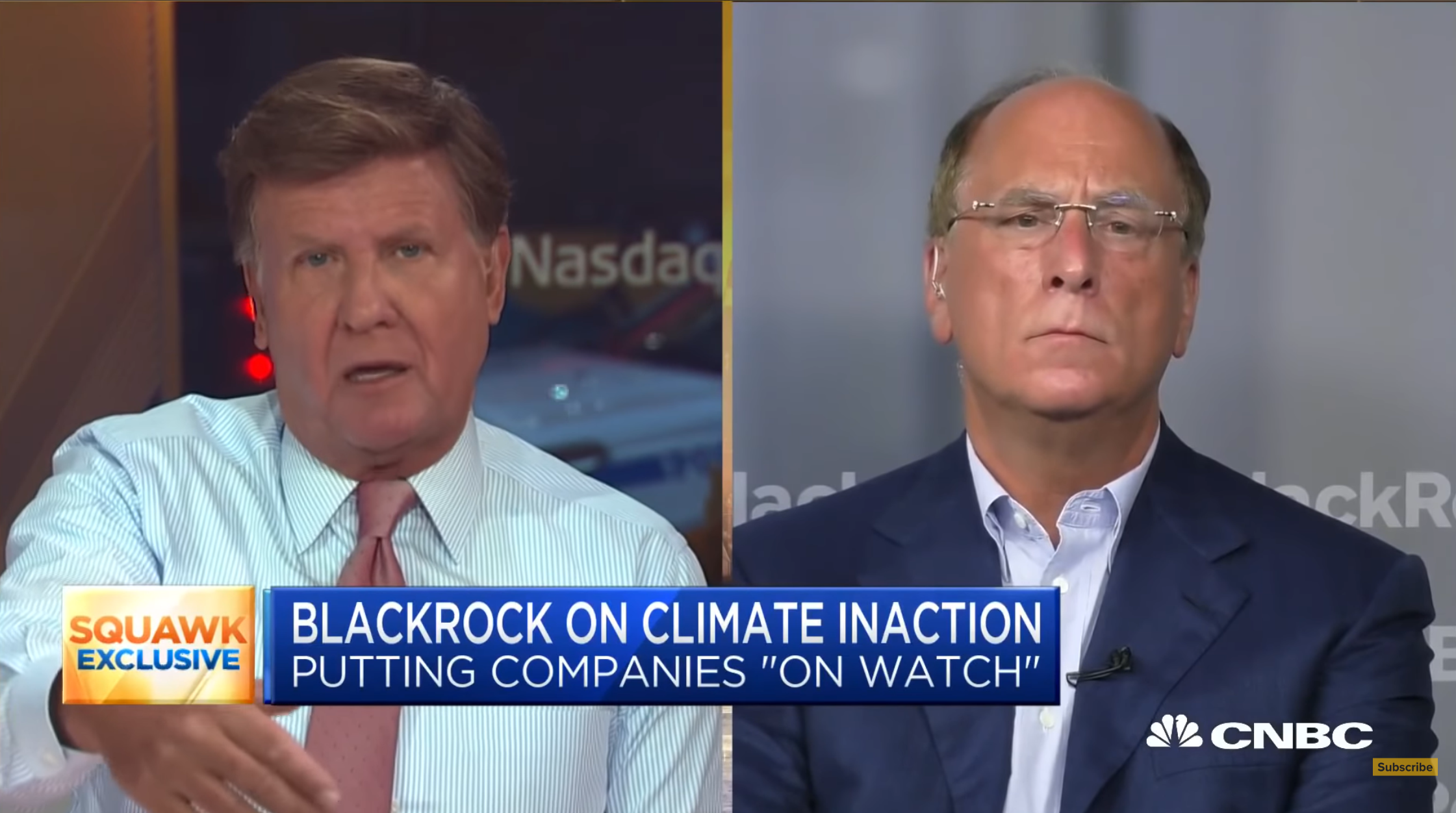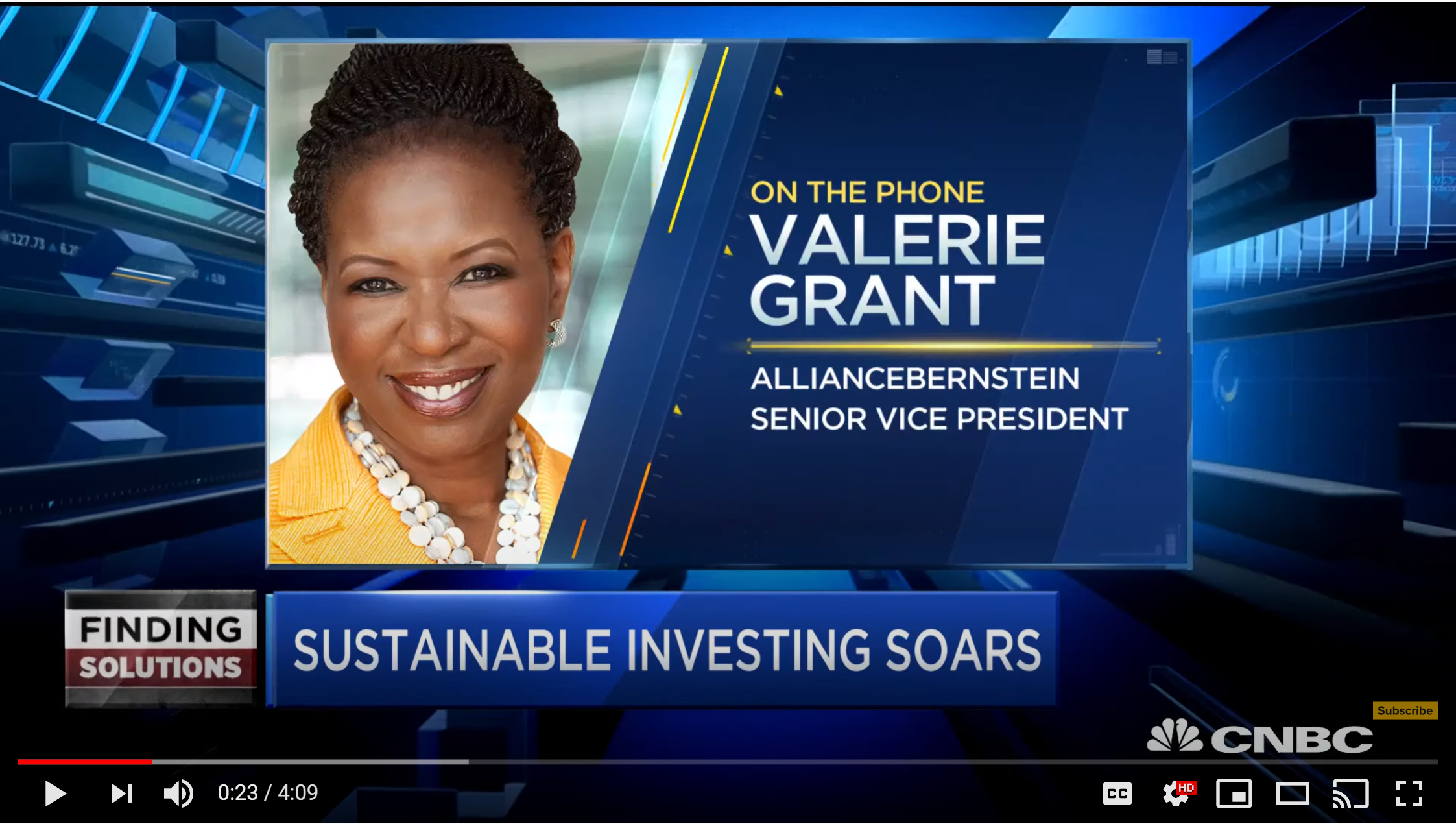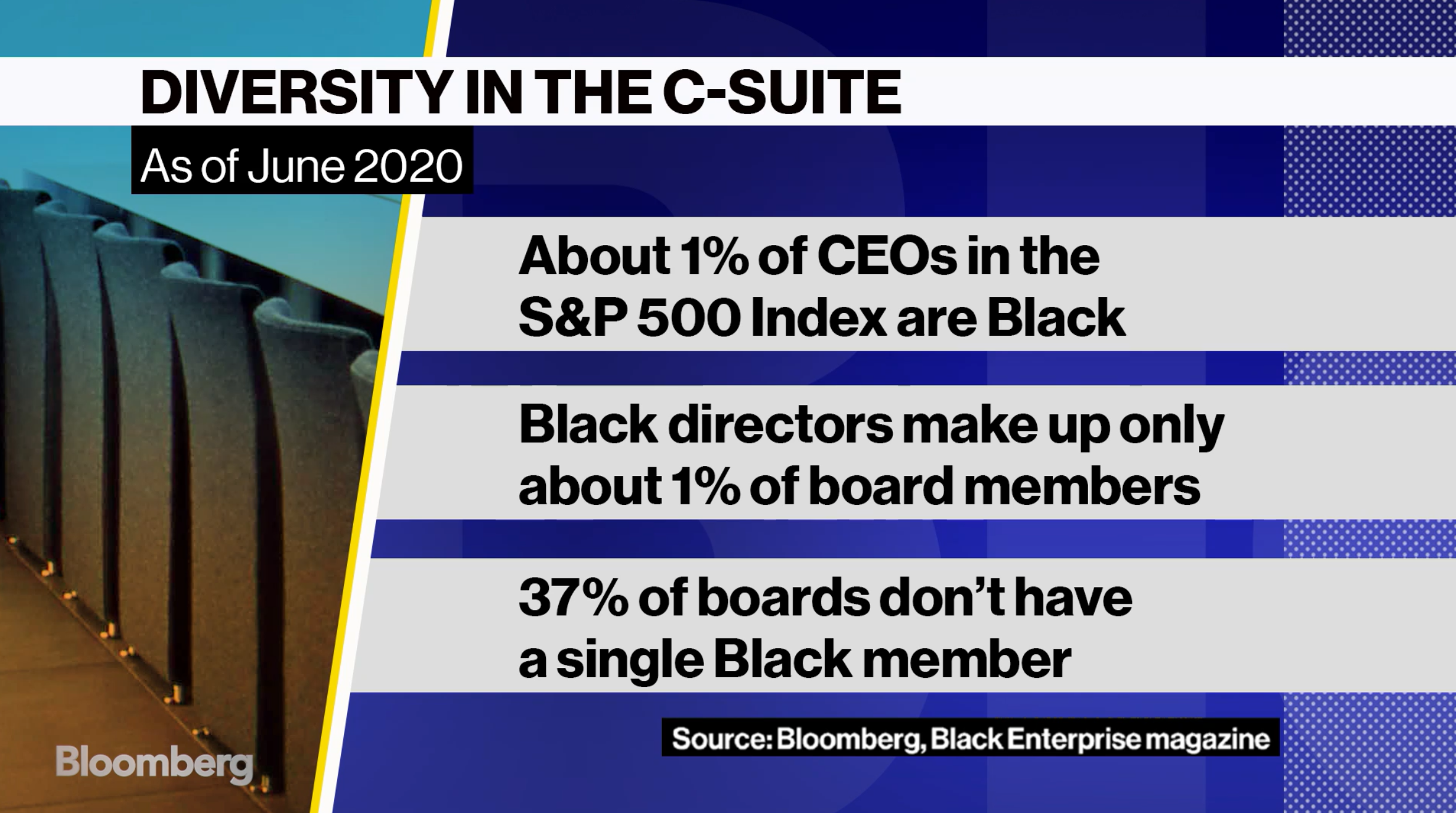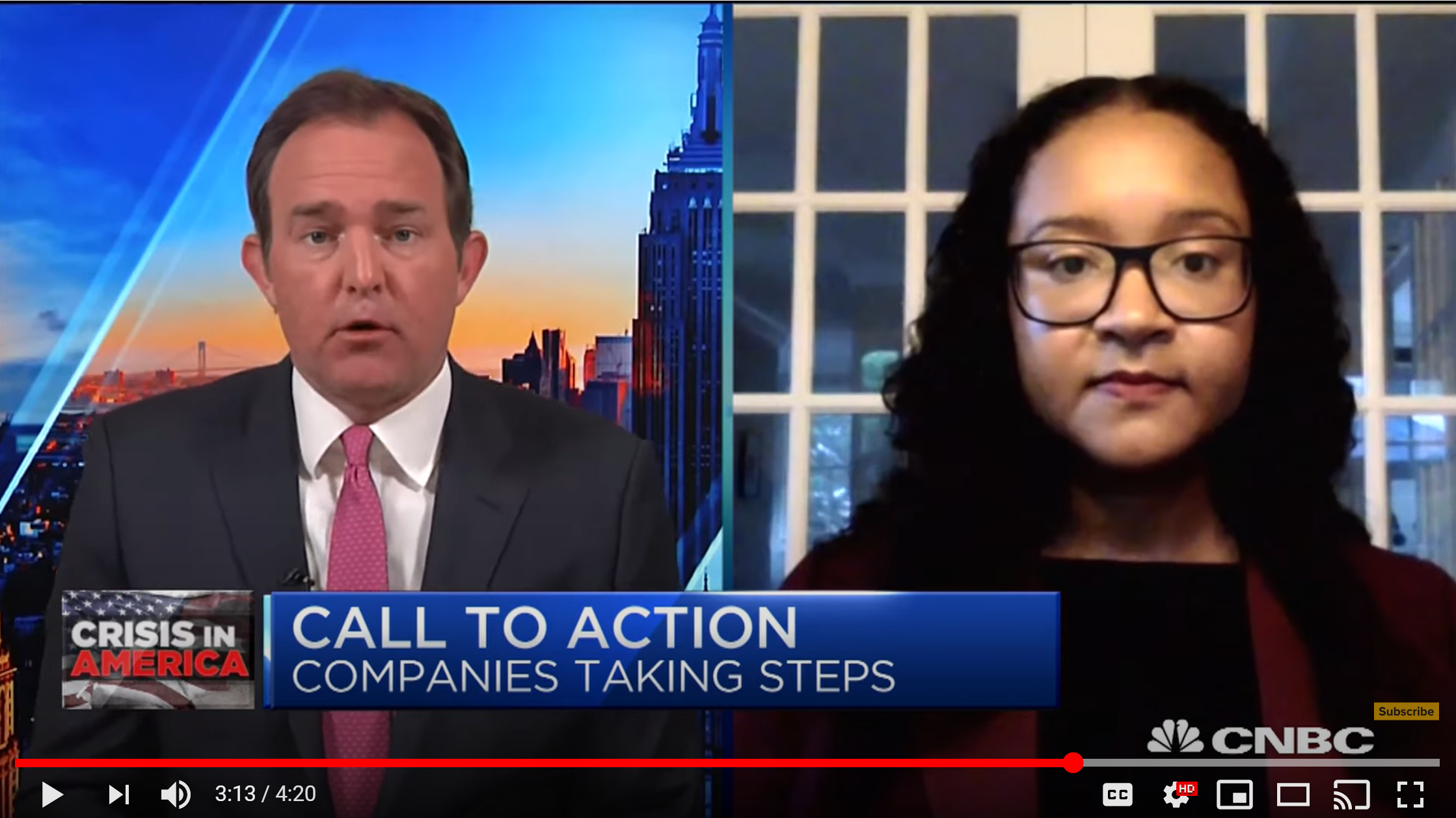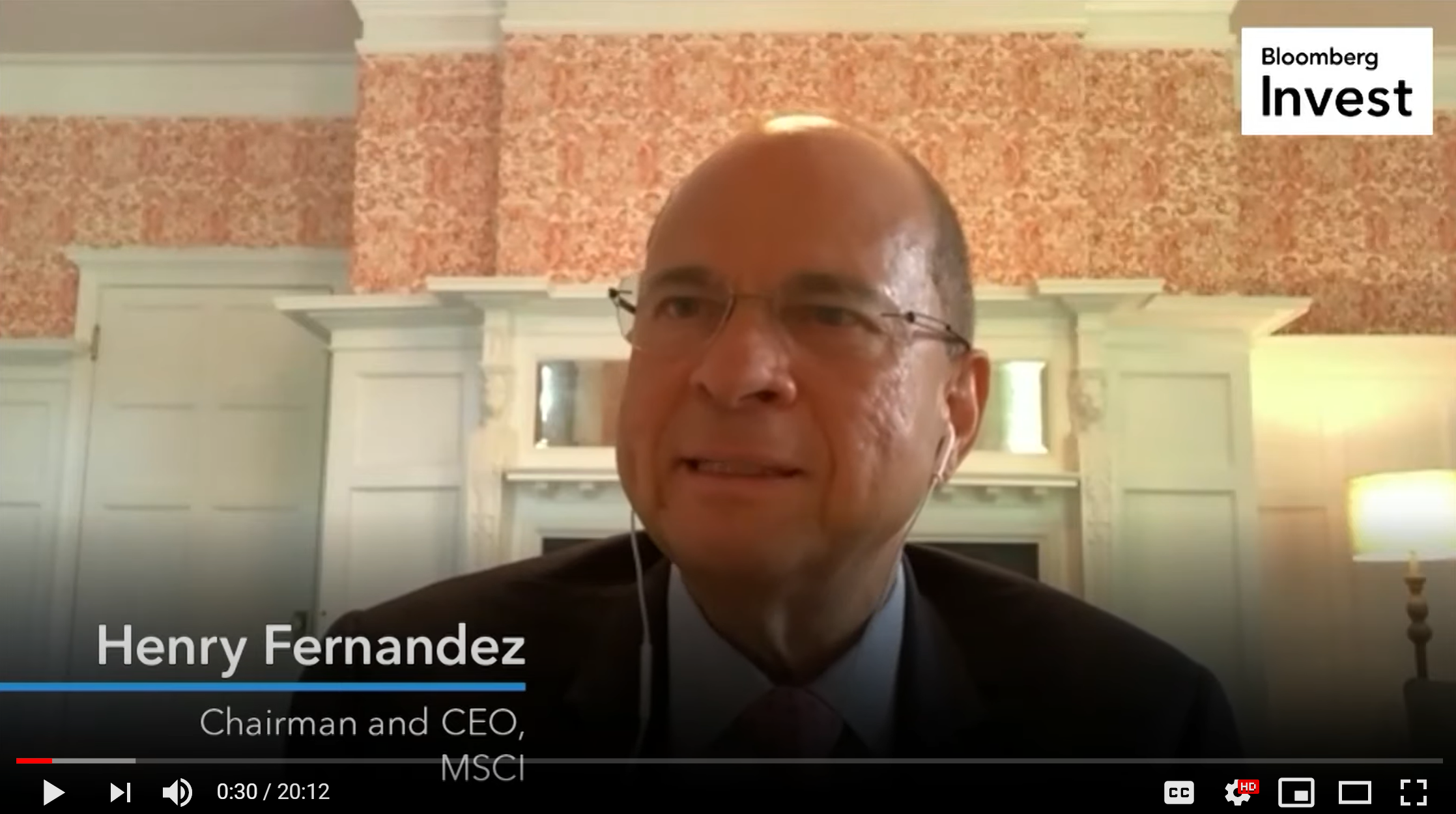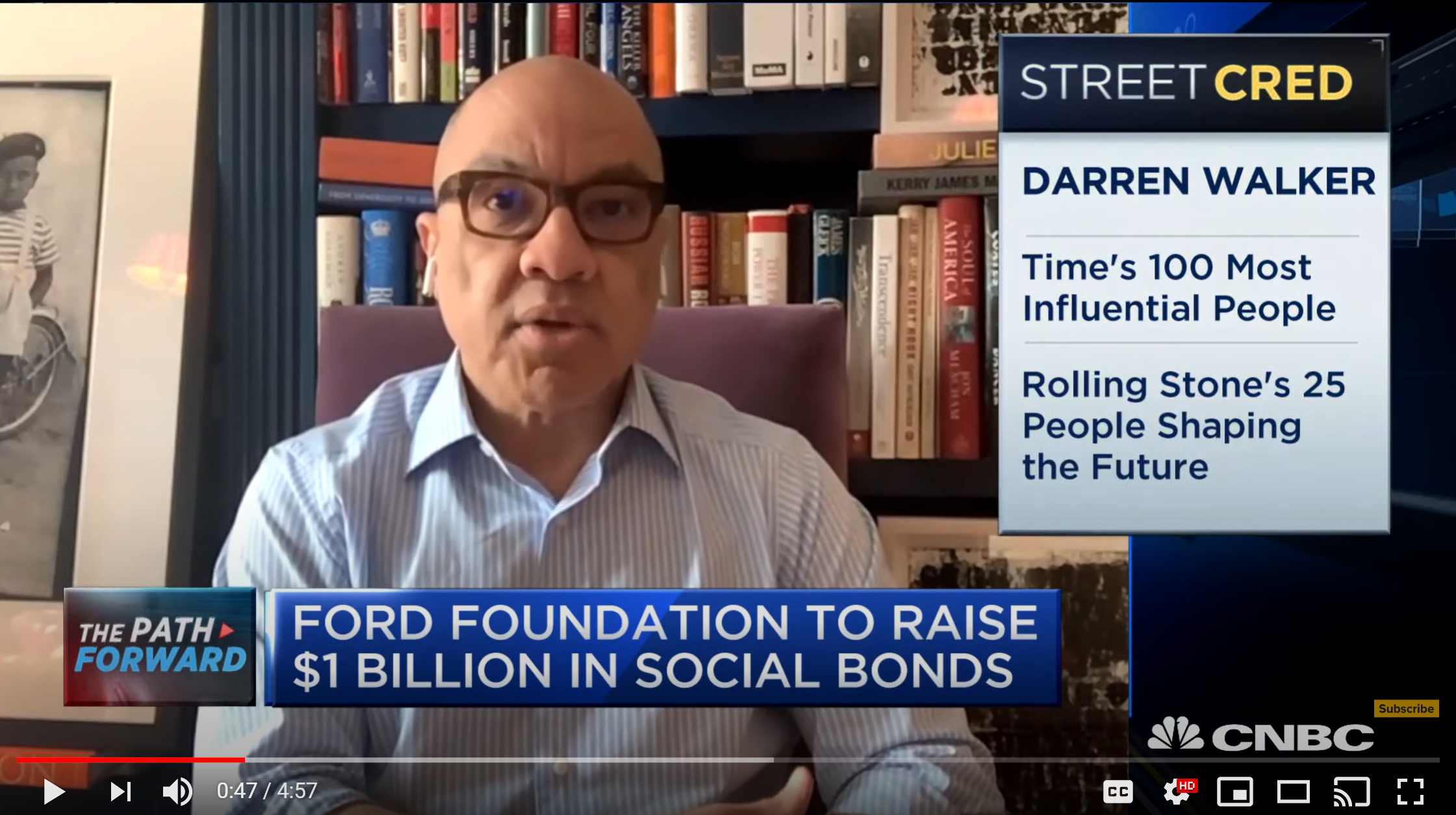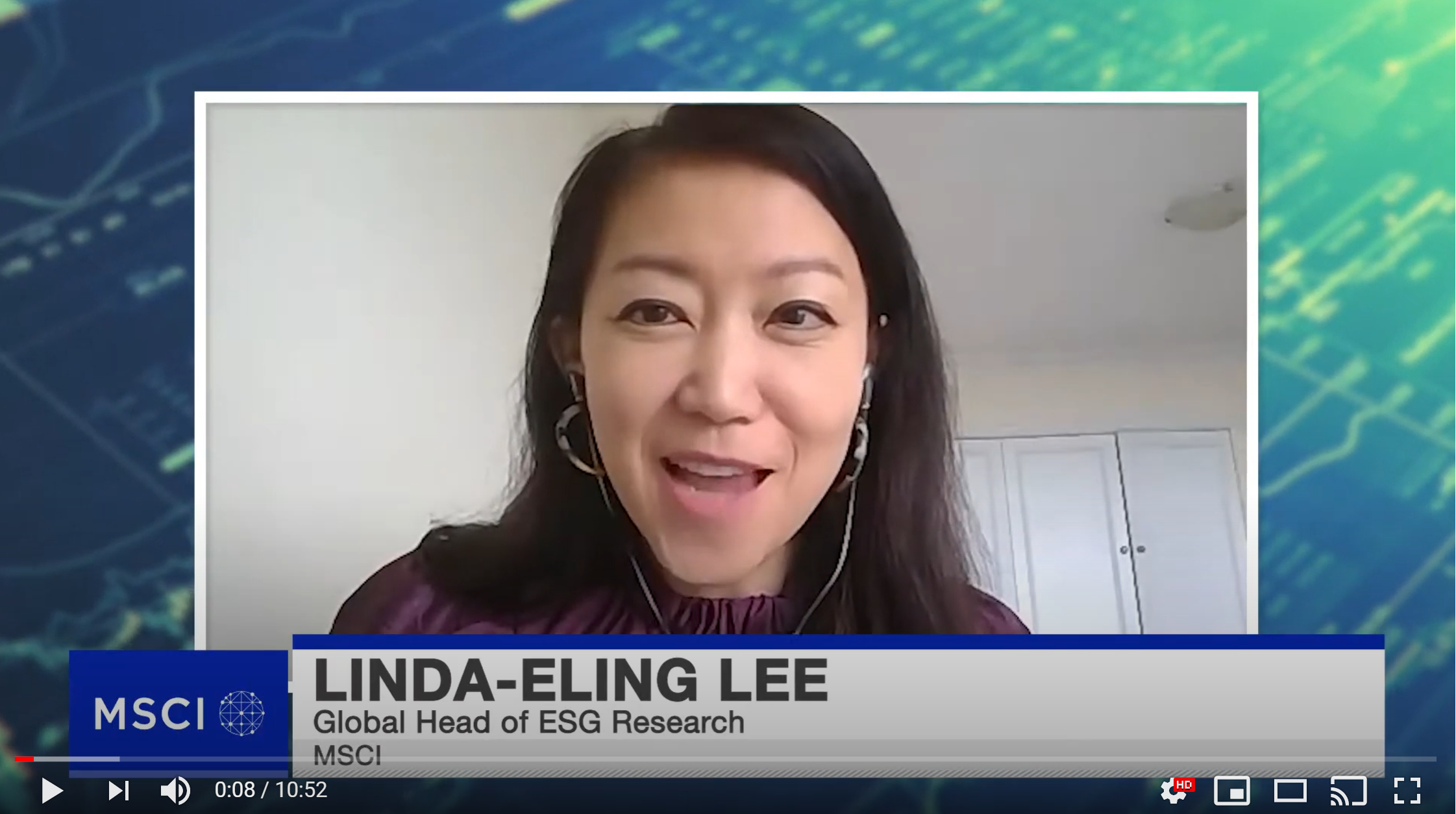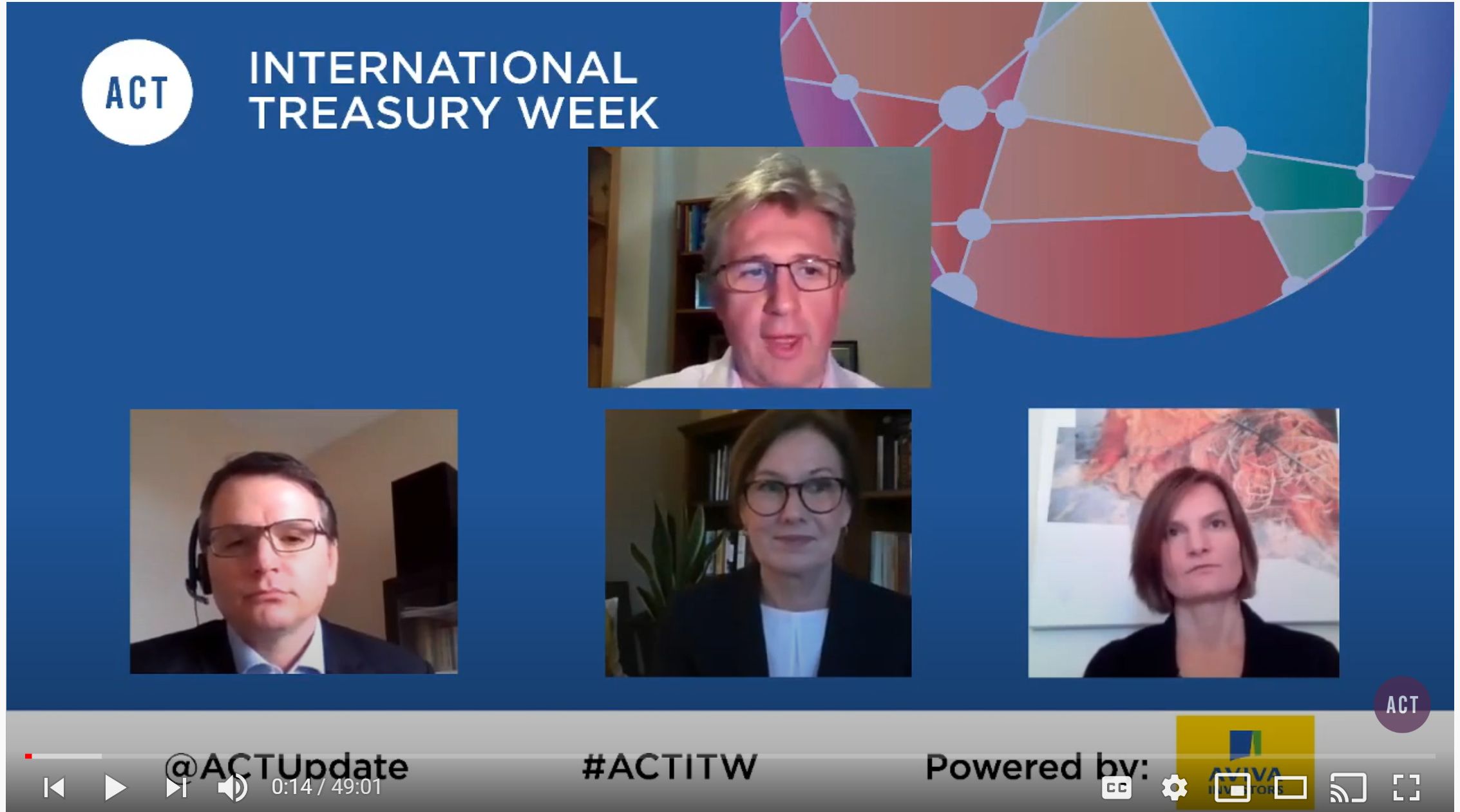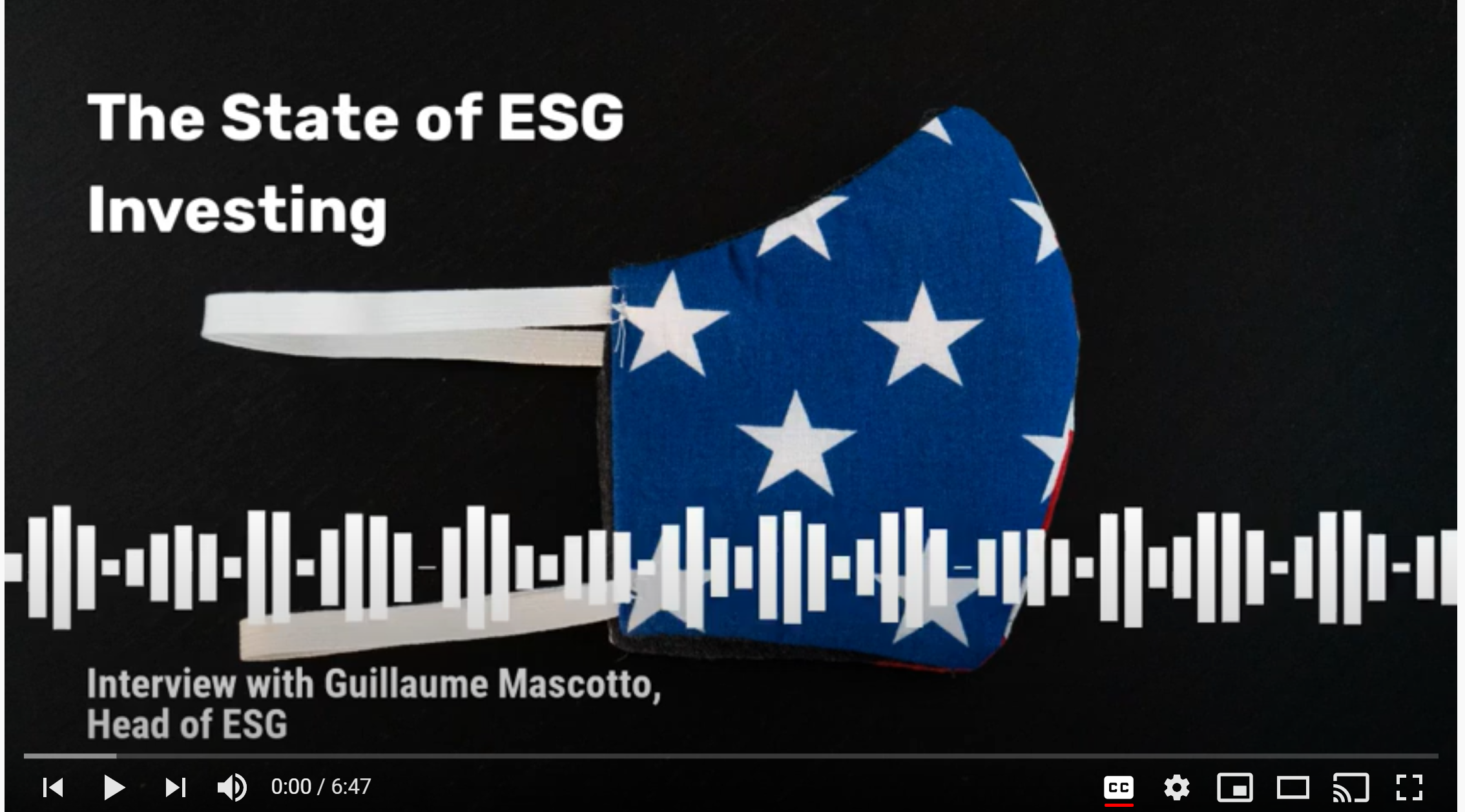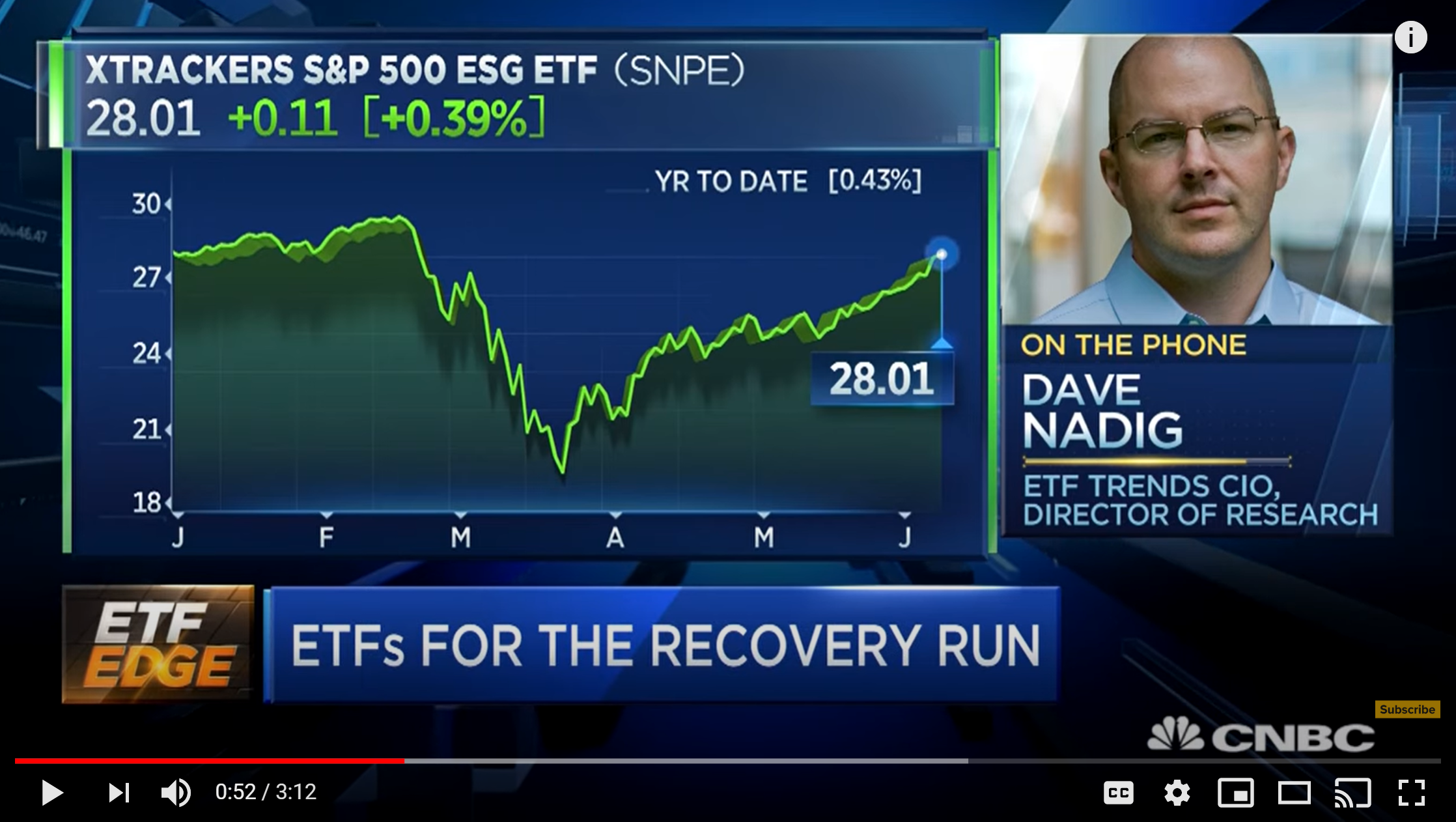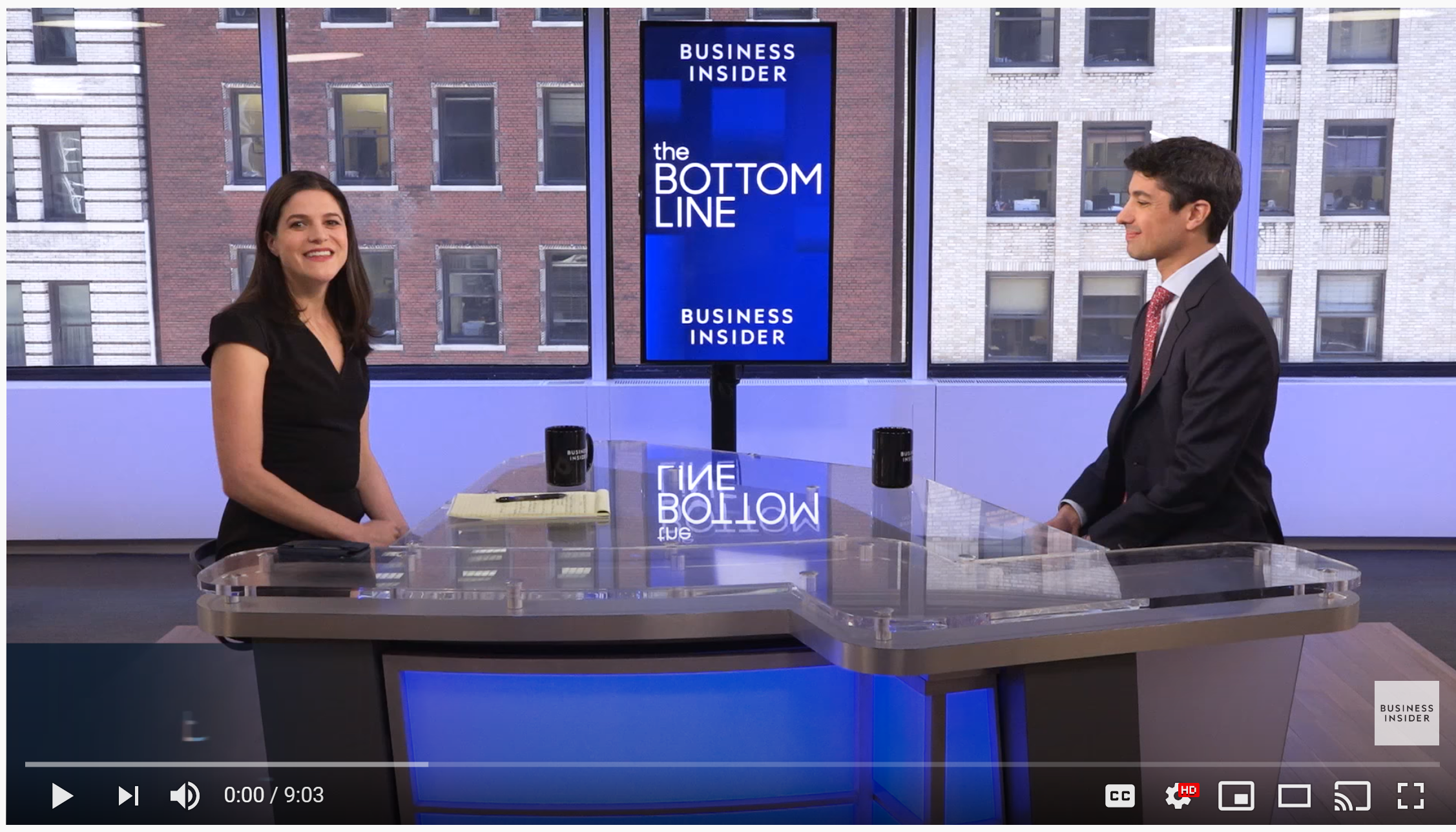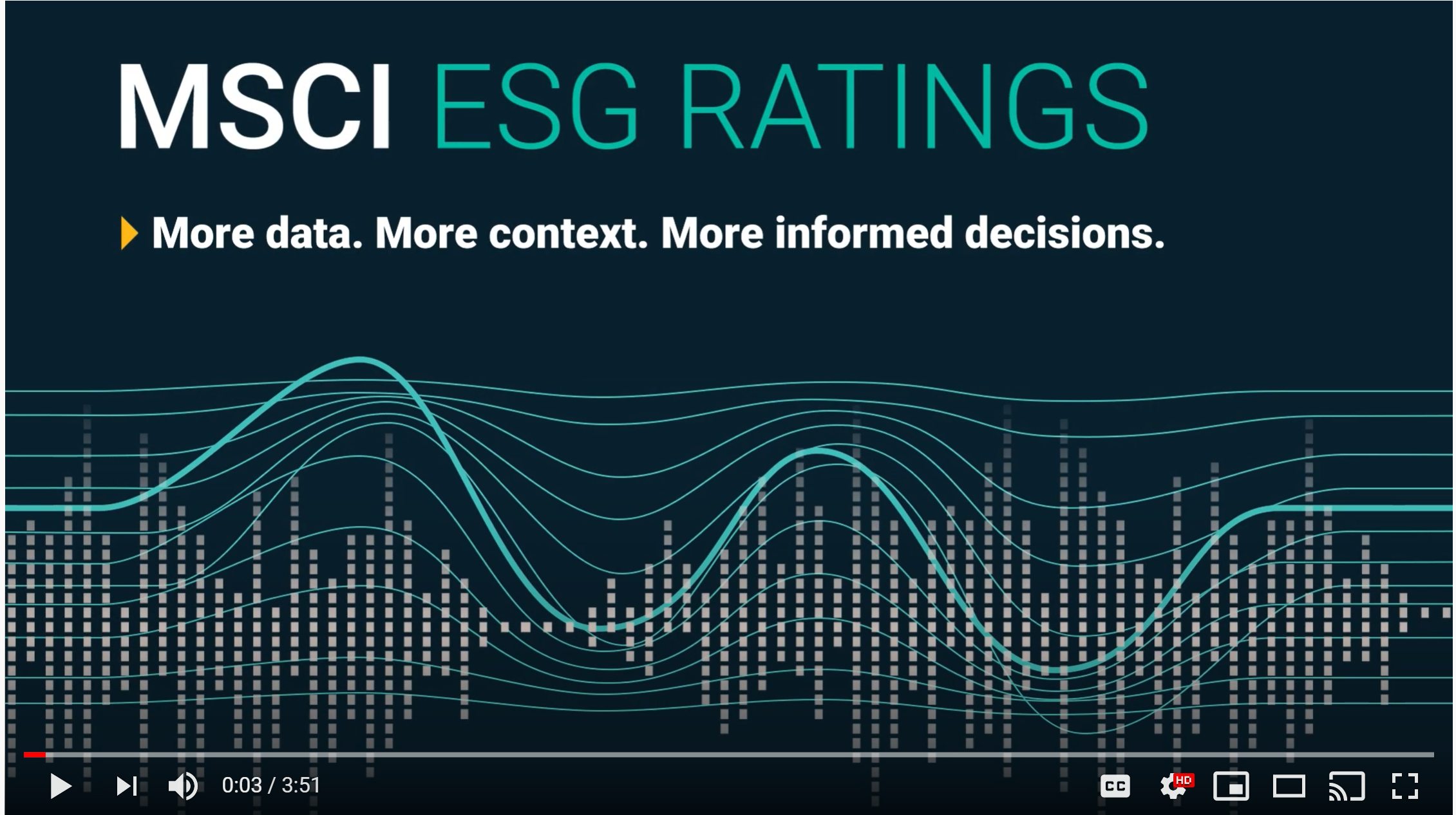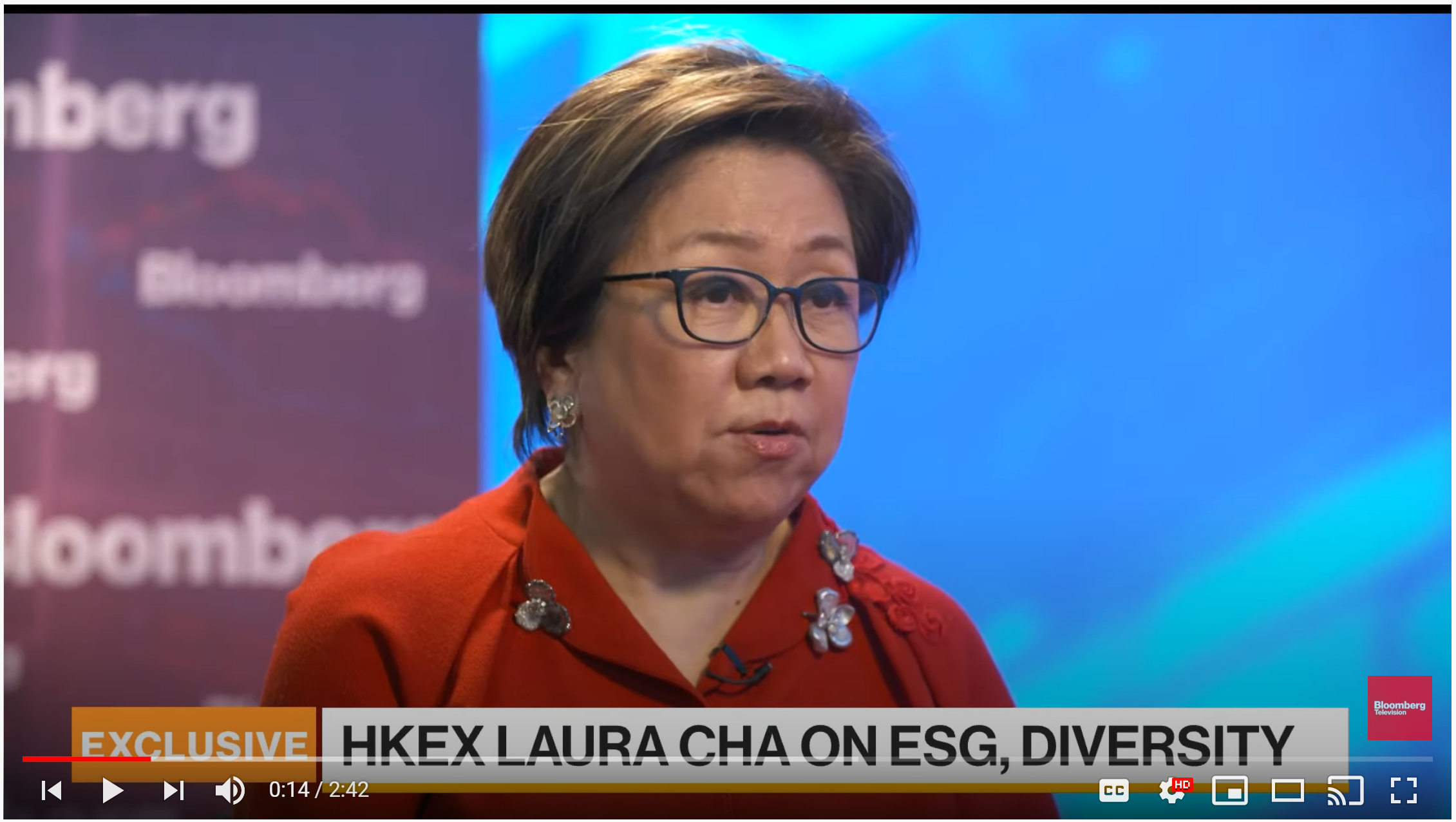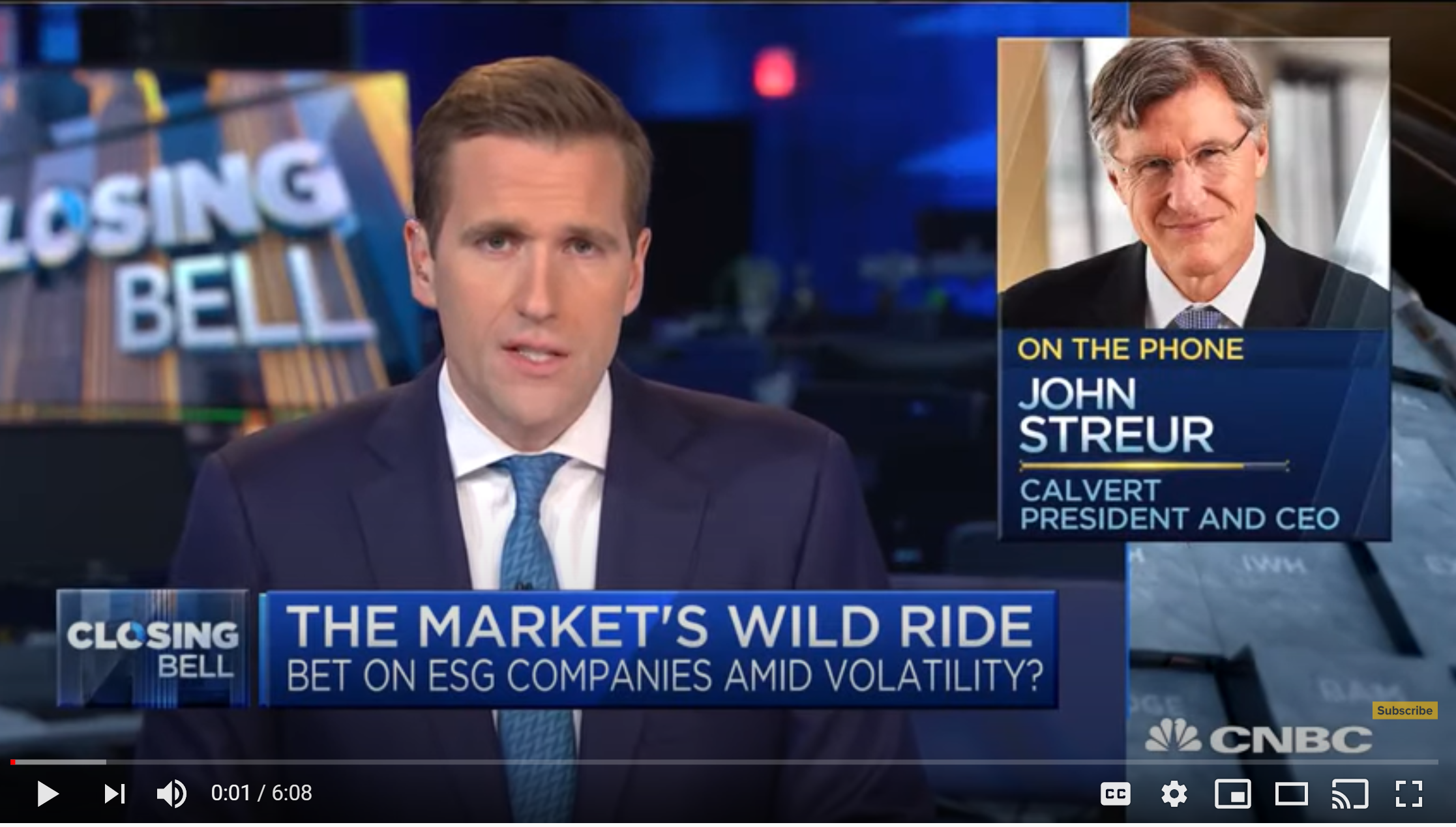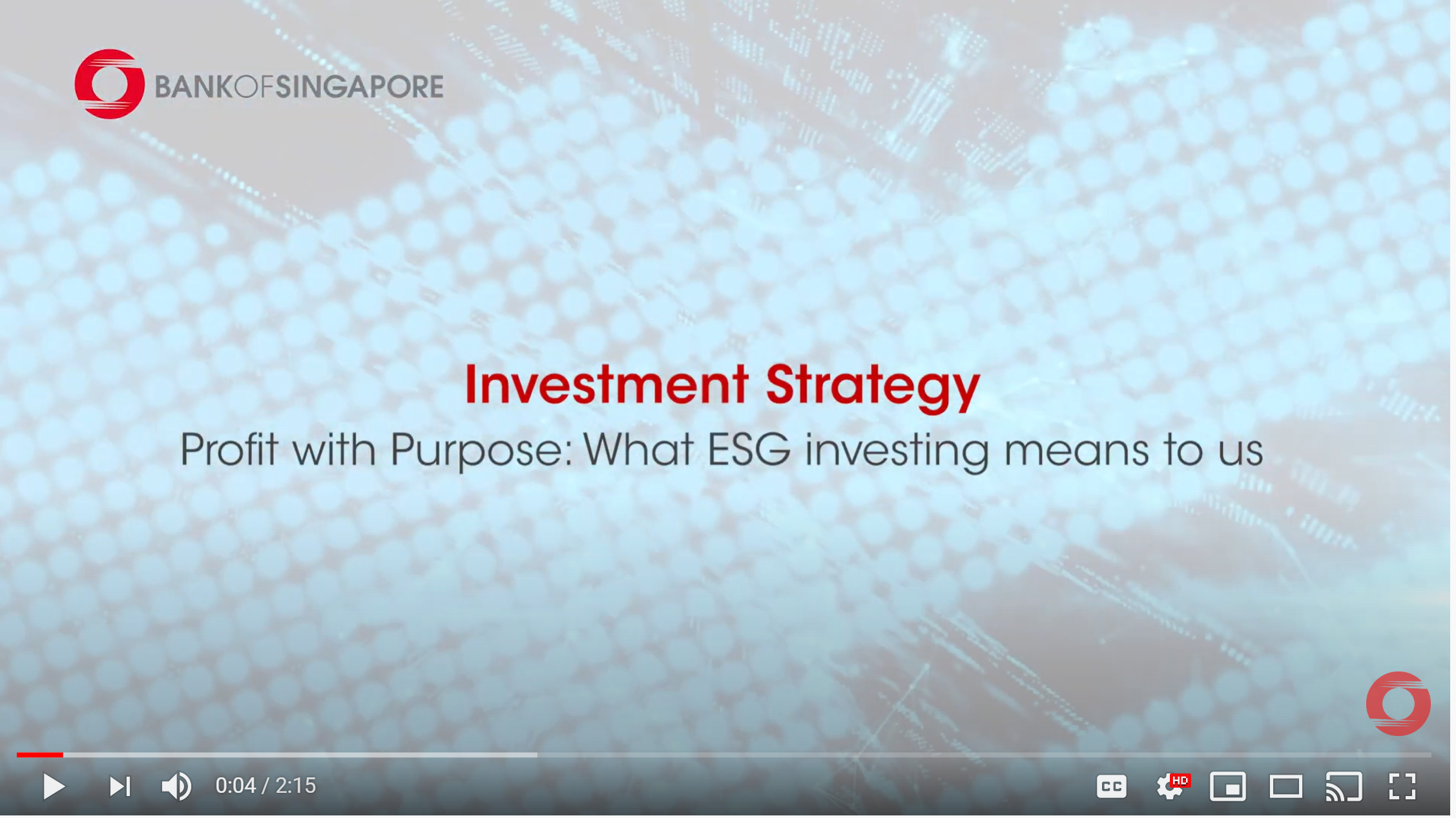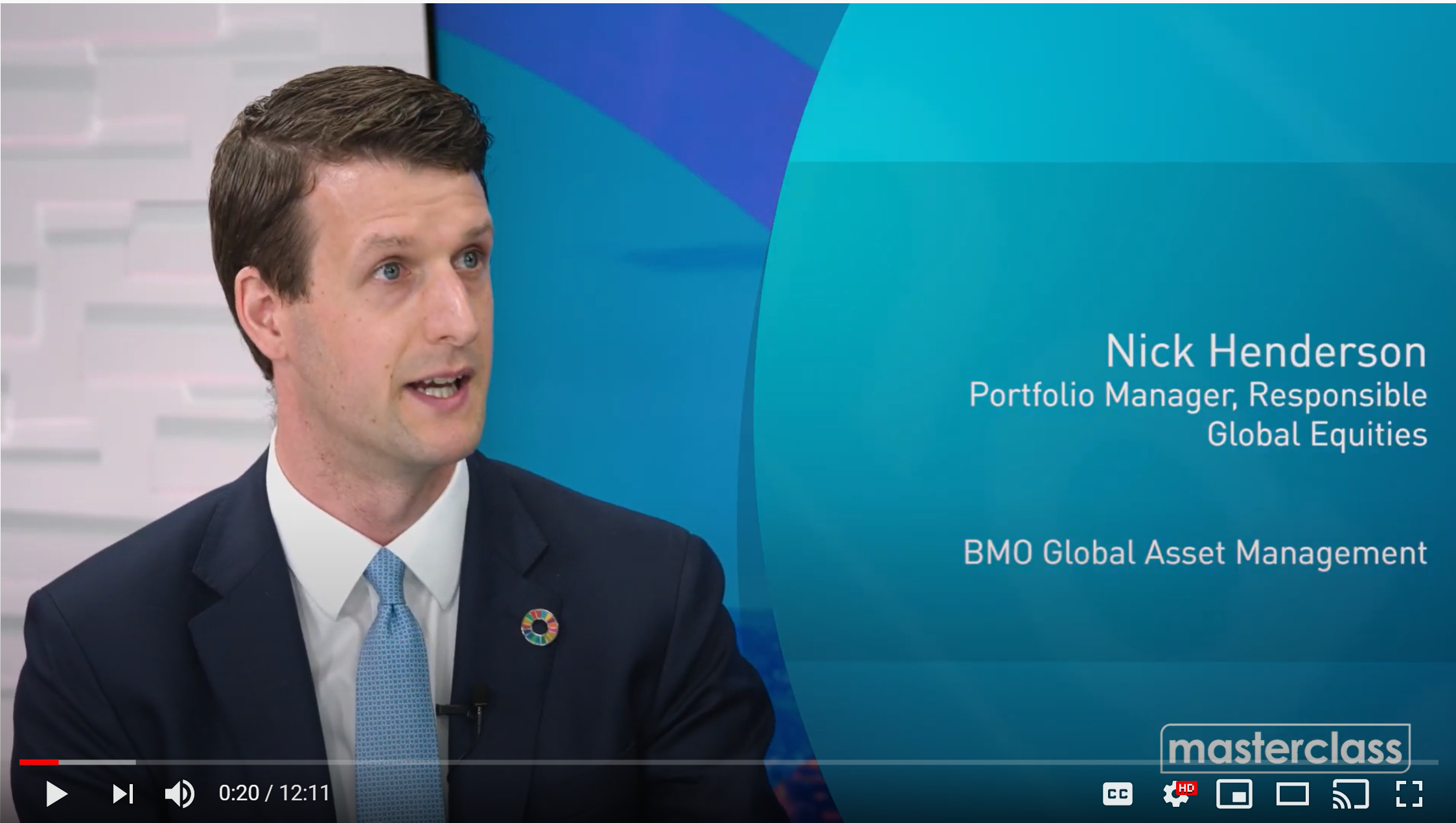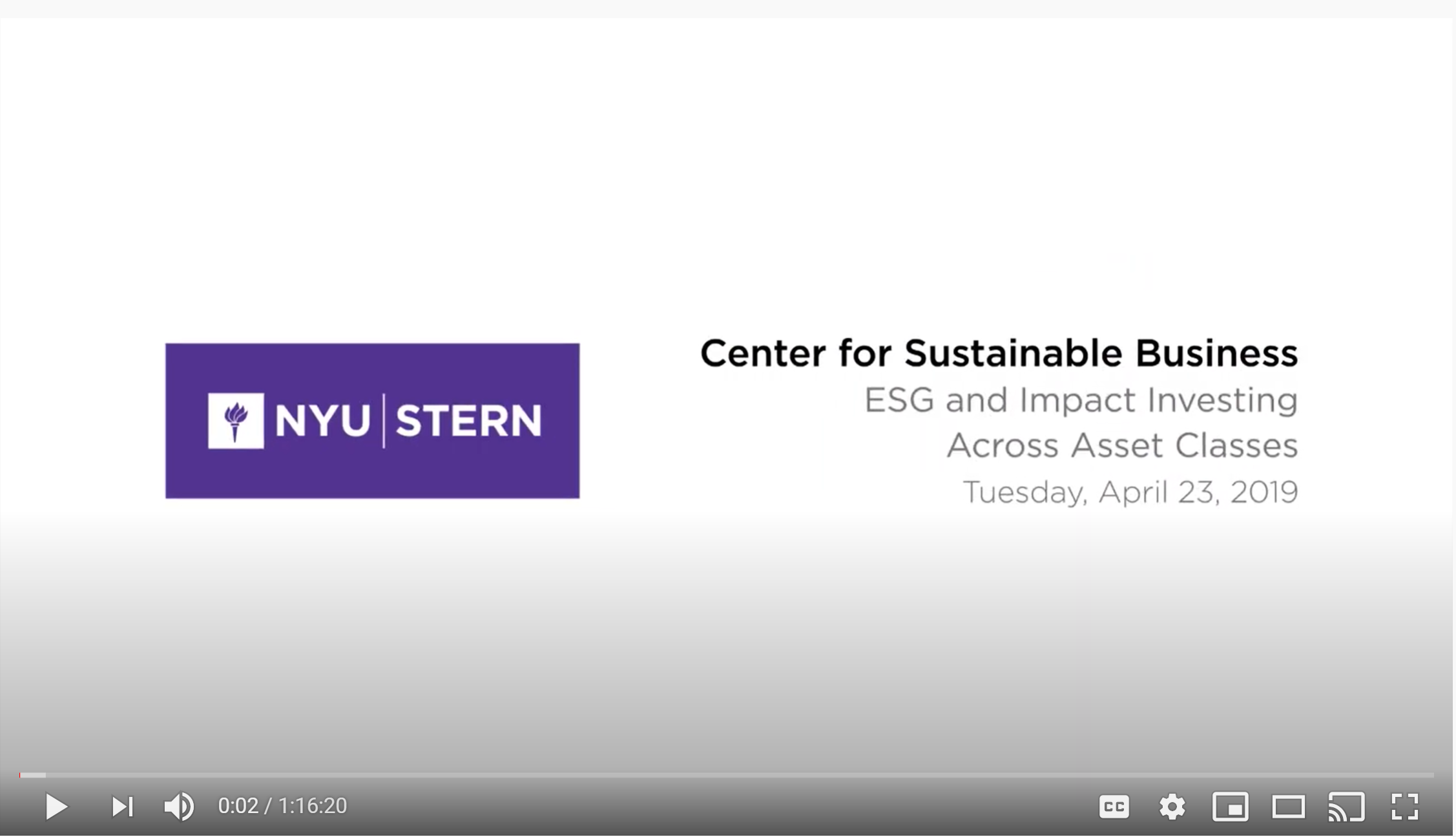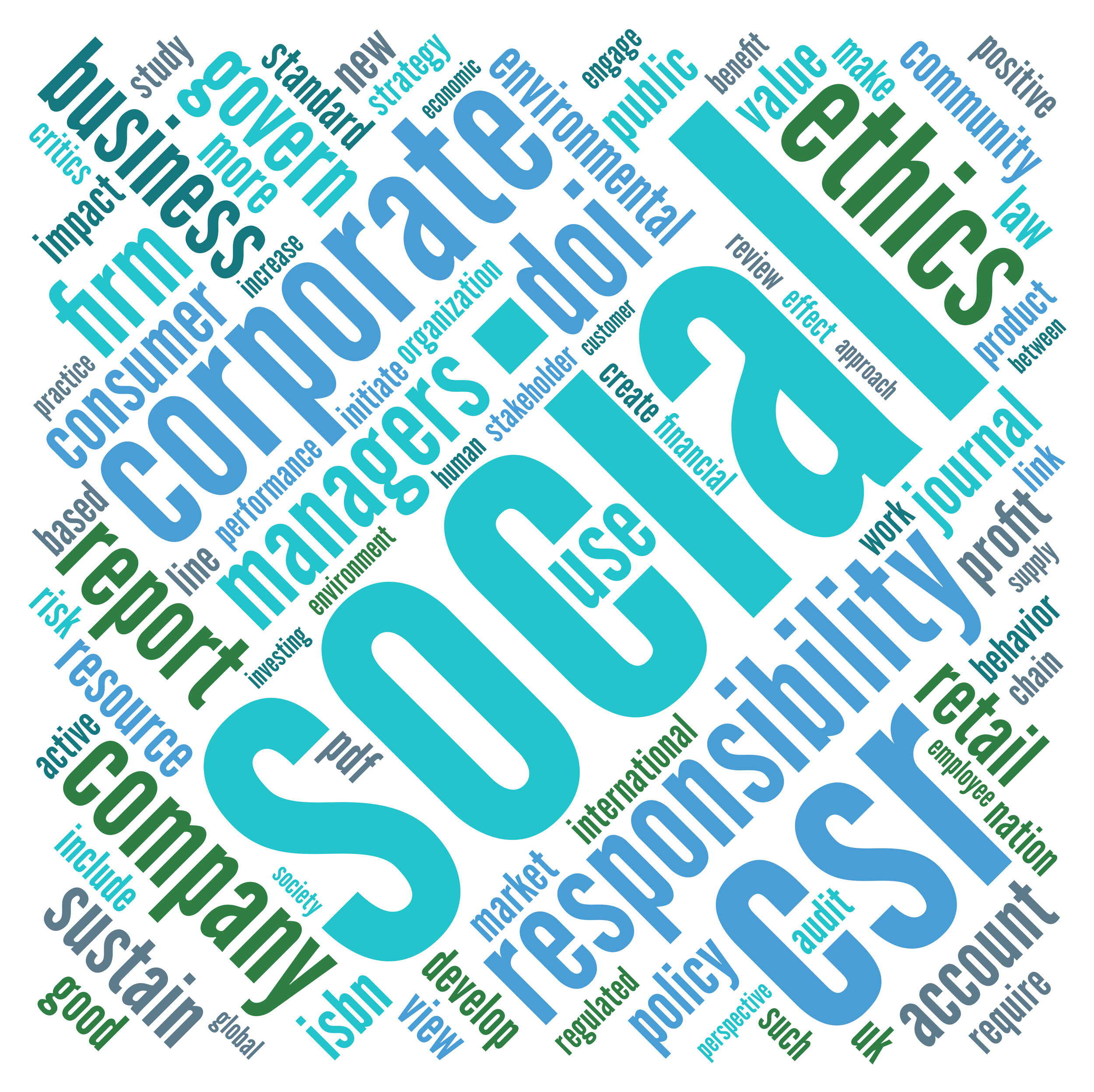Featured Commentary
AllianceBernstein’s Invests in ESG Improvers
Michelle Dunstan, AllianceBernstein’s global head of responsible investing and portfolio manager of its Global ESG Improvers Strategy, said the firm has incorporated ESG across all its actively managed products since joining the Principles for Responsible Investment in 2011.
AB has $16.5 billion on its “portfolios with purpose,” platform that includes sustainable strategies, low-carbon focused investments, and municipals with impact. Most of those strategies are focused on consensus champions that are very growth- and quality-oriented. Not so with the fund she manages with Jeremy Taylor, a trained engineer who heads the firm’s commodities sector.
Cowen to Provide ESG Scores in All Company Reports
Cowen said it would become the first major Wall Street firm to provide an environmental, social and governance (ESG) score on each of its company equity reports. Cowen is using technology and data from third-party ESG specialist Truvalue Labs, which deploys artificial intelligence to assess more than 100,000 sources of information that can help give a steer on potential issues and controversies in real-time.
“ESG factors have become a critical component of the investment process and there is a distinct need to have a solution set that can address the volume of information involved and standardization needed to have a clear view of corporate progress,” commented Robert Fagin, Cowen’s Director of Research.
ESG Investors Beat Market Without Apple, Amazon
Sustainable investing has been on a tear. The Covid-19 pandemic, social unrest, and a spotlight on global economic inequality has driven $21 billion into exchange-traded funds that focus on investing based on environmental, social, and governance, or ESG, factors in the first half of 2020. That’s nearly the amount of inflows for all of 2019, and four times the previous annual record.
Still, as the S&P 500 approaches yet another all-time high this week, the old saw about the perceived need to forgo returns for feeling good has returned. As of Thursday’s close, the SPDR S&P 500 ETF (ticker: SPY) has returned 5.7% year to date. How do ESG ETFs compare?
Pretty well, it turns out. Among the six largest sustainable ETFs focusing on U.S. stocks, there were four market-beating standouts, and two that just barely trailed the market.
Ethics Top Investor ESG Concern
72% of investors surveyed cited business ethics as the major ESG area that needs to be focused on since the outbreak of the Covid-19 pandemic (source: Asset Benchmark Research). Ethics was followed by the environmental impact on assets and operations (70%), systematic risk management (66%), energy efficiency (66%), and reporting and audit practices (57%). Interestingly, only half of the respondents (51%) picked employee well-being, despite it having become a heated social responsibility topic during the pandemic.
“Most companies should not only serve their shareholders for the main purpose of a corporation; but start serving society, through innovation and commitment to a healthy environment and economic opportunity for all,” an investor noted.
Nuns Create +$100M Climate Solutions Fund
A US-based group of Dominican nuns partnered with Morgan Stanley to create an impact fund that allows the nuns to invest $110 million to $130 million, and change the scope of how sustainable and positive investment is done. Created under Morgan Stanley’s Alternative Investment Partners Private Markets, the new fund will address critical climate issues including global warming and pollution, depleting resources and eco-diversity, and will focus on helping lower-income and marginalized communities that are disproportionately impacted by global warming.
“This fund is engaged in impact investing rather than screening. The fund advisors and managers are looking to support and provide investments in corporations that are doing positive good,” noted Angelo Collins, a member of the leadership council for the Sinsinawa Dominican Sisters in Wisconsin.
HSBC Launches ESG Portfolio Reporting Service
HSBC's new service will allow asset owners, such as insurance companies, pension funds and sovereign wealth funds, and the asset managers that invest their money, to keep track of the environmental, social and corporate governance (ESG) ratings of their large holdings and help them meet the increasing demand for greater transparency. The new reporting service will use ESG scores and ratings from leading rating providers MSCI, Sustainalytics and Vigeo Eiris.
“ESG is rising up the agenda for our clients, regulators and investors alike. This reporting service will enable our Securities Services clients to gain meaningful insights into ESG aspects of their portfolios using independent scores and ratings,” says Chris Johnson, Director of Market Data for Securities Services at HSBC. “This tool will enable Securities Services clients to see at a glance how large holdings in their selected portfolios are performing using recognised independent ESG criteria.”
Proxy Adviser Urges Companies to Disclose Ethnicity of Directors
One of the most influential shareholder advisors, ISS, is increasing pressure on companies to disclose the ethnicities of their directors and senior executives, according to the Financial Times.
Companies have been asked to make the disclosures on a voluntary, aggregated and self-identified basis. According to ISS data, black directors accounted for just 4.1 per cent of all board seats in the broader Russell 3000 index last year, while 13.4 per cent of the US population is black. The rise of environmental, social and governance-focused investment strategies, known as ESG, has added to the pressure to add more female and non-white directors to boardrooms. Vanguard is among the institutions to have called for greater diversity disclosure, telling the companies it invests in: “The business case is compelling... Diverse boards make better decisions, and better decisions lead to better results over the long term.”
Investors Pivot to Conscious Investing
ESG risks increasingly are playing a central role across the entire investment landscape. The days of responsible investing simply being a subset of investors seeking to “do good″ have long past. These days, keeping a finger on the ESG pulse of regions, countries, sectors and companies can be critical to understanding risks and opportunities in a portfolio. Looking forward, social and governance considerations likely will take on even greater importance as governments and societies seek to refine the balance between safety, individual freedom, privacy and growth.
Sustainable & Top Ranking on Social Criteria
While some social issues can be industry-specific, how a company treats its employees applies across the board. Eight out of the 10 companies that rank highly on S factors are in the technology and consumer-discretionary sectors. Of the 100 stocks, 80 are in the S&P 500 index; 30 have a market cap of more than $30 billion; 33 have a market value of less than $10 billion, with the smallest at $2.1 billion. Customer loyalty and employee retention play into the newfound focus on social considerations. “Reputation and brand is a huge intangible asset that could face a lot of erosion of value if you have big headline risks associated with different social issues,” said Jade Huang, a portfolio manager at Calvert Research and Management, the sustainable investing shop owned by Eaton Vance (ticker: EV).
ESG Considerations Become More Crucial
The ongoing COVID-19 crisis is expected to sharpen focus on environmental, social and governance (ESG) risks with increased relevance to credit according to Moody's Investors Service.
“The coronavirus pandemic has vividly illustrated how a social issue like a public health shock can have severe macroeconomic and credit implications. Entities demonstrating a stronger capability and willingness to address such ESG risks will increasingly differentiate themselves from their peers over time,” said Moody’s Investors Service AVP-analyst Matthew Kuchtyak.
ESG Investors Confront Own Race Problem
White people make up about 80% of employees in socially responsible investment firms, according to a January 2019 study published by industry consultants and financial advisers about racial disparities in the workforce. Black people account for just 7% of employees among the firms that were surveyed. Even the largest groups that represent socially responsible investors are behind the curve. The lack of Black people and other minorities may explain why the world of ESG has fallen short on pushing corporations on race.
“I am the first to admit that we aren’t where we want to be,” says Fiona Reynolds, chief executive officer of the London-based PRI, which represents about 3,000 firms that together oversee more than $100 trillion for clients. About 22% of PRI’s staff is comprised of minorities, including Black and Asian people. “We’re urging the global financial-services community to join us at the PRI in recommitting to make these issues our top priority.”
Activist Investor to Focus on ESG
Activist investor Jeff Ubben, who launched the $16 billion San Francisco-based hedge fund 20 years ago has left the fund to start a new fund focused on investing based on environmental, social, and governance criteria, or ESG. Ubben’s new fund will be called Inclusive Capital Partners and it has two ValueAct colleagues joining its team. “Companies, as governed today, with investors asking for more current returns and more buybacks and so forth, aren’t working for society or nature,” note Ubben. Part of his reason for leaving ValueAct had to do with the difficulty of running a traditional hedge fund and an ESG-focused fund in the same house, according to the Financial Times. The former group wondered if they weren’t being mindful, while the latter group worried they may be sacrificing returns.
ESG: Defining Event and Erosion Risks
MSCI found that risks can be divided into two main types: “event” risks and “erosion” risks to companies’ long-term competitiveness, with Environmental issues purely erosion-driven or unfolding over time; Social issues being both event- and erosion-driven; and Governance issues having the highest share of event risks. Highly active portfolio managers may want to focus on mitigating short-term event risks, while those building diversified portfolios with long investment horizons may be more focused on long-term erosion risks.
Tiny ETF Fights Racism — Beats the S&P 500
The Impact Shares NAACP Minority Empowerment ETF (ticker: NACP) was launched in 2018, currently with $4.6 million of assets under management. The tiny ETF is the only one that explicitly addresses issues of racial inequality, and it has weathered the coronavirus crisis better than the S&P 500.
Backed by the National Association for the Advancement of Colored People, the ETF tracks a Minority Empowerment Index developed by Morningstar. The index highlights companies that stand out for their commitment to diversity and inclusion. Factors considered in the selection process include board diversity, discrimination policies, community development programs, as well as nondiscriminary supply-chain and contractor policies
$26 Billion Investor's ESG Bets Outperformed in Selloff
Securities that meet environmental, social and governance standards have proved a better bet so far this year than those that don’t, according to Hanna Hiidenpalo, chief investment officer at Elo Mutual Pension Insurance Company, a $26 billion fund in Helsinki. “During the crisis, we discovered that the business models of responsible companies are often based on a more solid foundation, which is also reflected in better valuations,” she said.
Investing with Sustainable Development Goals (SDGs)
The United Nations-supported Principles for Responsible Investment (PRI) has published a new report on investing with Sustainable Development Goals (SDGs), providing its signatories - investors that collectively have US$100 trillion in assets under management - with a new high-level framework of investor actions to shape outcomes in line with the SDGs.
The release of the framework marks another step in the march of environmental, social and governance (ESG)-conscious investing within the global asset management community. The report argues that investors should look beyond financially material ESG issues and consider tackling societal and environmental issues at a systemic level as part of their investment strategies, and wider collaborative actions as part of the global effort to achieve the SDGs by 2030. The PRI report details the dynamics by which investors’ actions produce both positive and negative outcomes in relation to pressing global issues such as environmental degradation, human rights abuses, climate change, social inequality, and water security.
“As long-term investors, we believe infrastructure – and real assets more broadly – has a critical role to play in moving towards a truly sustainable future. As such, the UN’s Sustainability Development Goals are an essential layer of our investment framework in assessing whether an asset will have a positive environmental and social impact,” says Darryl Murphy, managing director, infrastructure, at Aviva Investors.
ESG Funds Outperform
According to a new report from Morningstar, many funds investing in companies with relatively high ratings for ESG factors “prove to be more buoyant” than comparable non-ESG funds during market declines.
Within the ESG fund category, funds with higher Morningstar sustainability ratings outperformed those funds with lower sustainability ratings.
Morningstar analyzed more than 137 funds across 19 investment categories with $50 million or more in assets over one, three and five years though March 31, which captured some but not nearly all the market volatility during the COVID-19 pandemic. Funds with less than three-year track records were excluded. ESG funds tended to capture less of the downside of their Morningstar benchmark and to experience less volatility than comparable non-ESG funds during market drops. They have also been helped by a significant underweighting of energy stocks.
Trying to Assess Climate Risks in Sustainable Finance
The pandemic reminds us of the fragility and importance of the physical world, and also of the threat of sudden, non-linear risks. This has dramatically accelerated the emergence of a new ESG finance trend: assessing how potential climate-change outcomes might affect the performance of an investment.
London-based Institutional Investors Group on Climate Change (IIGCC), advises that investors not rely on company disclosures of physical risks when assessing potential climate-change outcomes, as most of the reports published by companies don’t contain “decision-useful information” for investors.
Majority of ESG Funds Outperform Wider Market
ESG funds have exploded in popularity in recent years as emergencies such as climate change have pushed individuals to invest according to their values.
Data provider Morningstar's analysis of 745 Europe-based sustainable funds found that the majority of strategies have done better than non-ESG funds over one, three, five and 10 years. The study showed that sustainable funds also outpaced traditional funds during the market sell-off sparked by COVID-19 in 1Q20.
“ESG factors are not just ‘nice to have’ but drivers of outperformance,” said Jan Erik Saugestad, chief executive of Storebrand Asset Management.
CEOs are offering plans and investments to address racial inequality after George Floyd death
“There are in fact barriers that are faced by African Americans even though we don’t have laws that separate people on the basis of race anymore. We still have customs. We still have beliefs. We still have policies. We have practices that lead to inequity,” said Merck CEO Kenneth Frazier.
Bank of America CEO Brian Moynihan told CNBC the company was “doubling down” on its work to address racial inequality with a $1 billion commitment over four years to help communities, particularly those that also have been hit hard by the coronavirus pandemic.
Comcast, parent company of NBCUniversal, has pledged $100 million over three years to fight injustice and inequality. CEO Brian Roberts said, the company will accelerate efforts on diversity and inclusion that includes bolstering its recruiting strategy. “While we recognize we don’t have all the answers, we agree it’s time that we start putting our words into real, sustainable action.”
Bold Diversity Promises, With a Long Way to Go
Statistics show the lack of progress among the corporate workforce. According to data from human resources consulting company Mercer, 64% of workers in entry level positions are white. In the top executive ranks, however, 85% of positions are held by white employees, demonstrating the promotion gap that minorities face. And women and minorities continue to under-earn white male colleagues, according to the Economic Policy Institute.
Consulting firm McKinsey found that more diverse companies are positioned to meaningfully outperform their more homogeneous counterparts. Companies in the top quartile of gender diversity on executive teams were 25 percent more likely to experience above-average profitability than peer companies in the fourth quartile. This is up from 21 percent in 2017 and 15 percent in 2014. (June 11, 2020)
esg lINKED TO Loan pricing
A Carlyle Group-backed company created the first institutional term loan with interest payments directly linked to environmental, social and governance, or ESG, factors. A senior lender said, "This is a situation where finance and sustainability come intrinsically together, and it's a win-win for everybody."
An investor added, "You’ll see more deals like this - this is the first, but it's not the only one. They won't all be identical and won't use the same metric, but will represent an acceptance by the market that this can become part of transactions.” (June 8, 2020)
ESG Momentum Continues to Strengthen
The 109 dedicated ESG and Sustainable funds that Credit Suisse tracks recorded net inflows every month of 2020. In addition, Credit Suisse found that 68% outperformed the MSCI AC World index during the past 12 months. The alpha on a 12-month basis has increased from 153 basis points in February to 196 basis points. The popularity of ESG investing has been growing rapidly during the past few years. Since 2014, more than 1,800 ESG funds have been set up, according to Morningstar. While historically governance-related risks have been a key area of focus for investors, growing concerns over climate change and global warming have been the key driver. (May 30, 2020)
SEC push to require ESG Disclosures
A subcommittee of the Security and Exchange Commission’s Investors Advisory Committee is recommending that the agency update its reporting requirements for public companies to include material information related to environmental, social and governance (ESG) factors. “The time has come for the SEC to address this issue,” notes the recommendation of the SEC’s Investor-as-Owner Subcommittee.
FeaturED sustainability Report
BlackRock’s recent publication on sustainable investing found strong performance in themes including customer relations, firm culture, and board effectiveness, providing insight into resilience.
Click for BlackRock’s 1Q 2020 report on Sustainable Investing


